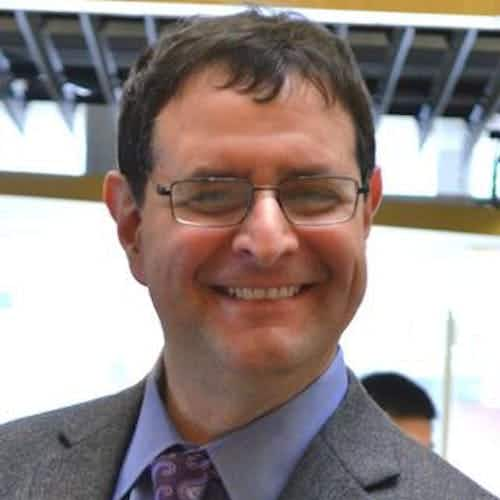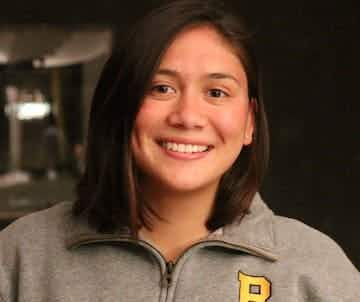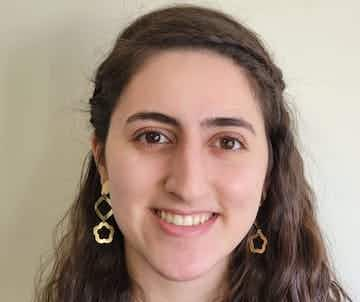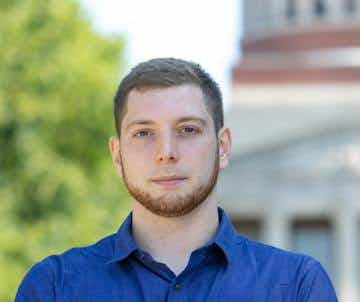Online Course for High School Students
Biomedical Engineering: Solving the Body’s Challenges with Technology
Engineering the human body
Artificial limbs and implantable devices, diagnostic screening equipment and technical advances to solve health problems — these are all made possible by Biomedical Engineering. This online course teaches you how to marry the techniques of engineering to biology and medicine. Identify the stages of engineering design, how to measure, collect and display data, and delve into topics around medical innovation. If you’re interested in a future in engineering or healthcare, this course is for you.
Apply Now
Your hands-on introduction to Biomedical Engineering
Learn the engineering approach to the body
Understand the difference between a scientist, an engineer and a biomedical engineer. Explore the engineering approach to medical problem solving and review news stories on the topic.
Master the practice of measuring; a key part of the engineering design process
Discover why measurements are a critical part of the engineering design process. Understand how bioengineers collect data and the many ways they put it to use.
Be able to answer the question: how do skeletal muscles work?
Look into the mechanics of muscle tissue: learn the relationship between the length of a muscle and the magnitude of the force it can produce.
Investigate skeletal modeling
Learn how to apply simple lever mechanics to the attachment of muscle to bone, and how engineers create and use body diagrams. Apply engineering specs to solve problems.
Discover how the heart muscle works
Explore a 3-dimensional model of the heart and make predictions based on the relationship between heart volume and pressure. Confirm your findings through data.
Prepare for a future in Biomedical Engineering
This course offers a good background for potential careers in biomedical engineering — biomaterials developer, manufacturing engineer, orthopedic surgeon, biomedical scientist/researcher or rehabilitation engineer.
How you will benefit
- Know how to compare and contrast engineering and science
- Gain the ability to take measurements of temperature and prove accuracy
- Learn how to analyze and model the workings of the heart muscle
- Apply brainstorming techniques to develop solutions
- Learn how to work with specs and design simple engineering solutions
- Develop your communication and presentation skills
- Determine if biomedical engineering is a field you’d like to pursue

3 Learning advantages designed for you
1. Flexible Learning
- 100% online — works with your schedule
- 20-25 hours of total instruction and course work, including engaging multimedia, simulations, and curated assignments for which you will receive guidance and support
- You’ll learn through engaging videos. Tune in anytime that works for you
- Engage with fellow students from around the world
2. Mentoring
You’ll receive guidance from a mentor who can support you and answer questions as you deepen your learning experience. You can expect:
- Encouragement and direction on all assignments
- Inspiration, motivation and confidence to help you succeed
- Brainstorming to help as you prepare for your final capstone project
3. Final Project
The course culminates with a special final project that allows you to:
- Generate ideas using (solo) brainstorming techniques
- Use screening techniques you’ve learned to rank your ideas
- Generate a short report on the biomedical engineering problem you’ve chosen for this project and be able to model the solution
Apply now for the next available course
All course options, whether 2 or 4 weeks, have the identical educational content, learning materials, and number of assignments. The difference in length of course is due to time of year (not amount of instruction). We know the school year keeps you busy, so we’ve made the course longer during that time so that you can get assignments done.
Hear from the University of Rochester
Hear from our students
Caitlin, biomedical engineering student from NY"I would recommend this course to any student interested in biology, anatomy, nursing, or engineering because it promotes thinking in all of these fields as well as others. You'll hear from people in different regions of healthcare and how biomedical engineering has extended its influence to them. This course pushes its participants to think in a way that cannot be taught but rather experienced."
Abigail, biomedical engineering student from CA"This course allows students to explore a topic that isn't touched on in school. By taking this course, you may find a new passion in biomedical engineering. The course is well put together and easy to understand; it would be a good experience for anyone."
Course designed by:
Scott Seidman, PhD, Professor of Biomedical Engineering
Professor Seidman’s engineering background is in bioinstrumentation and embedded devices. He has applied this expertise as co-inventor on two patent applications for medical devices, both in the area of neonatal monitoring. His work was recently awarded funding for further development from the University of Rochester Technology Development Fund. Another area of interest is assistive technology to help people with profound accessibility issues use computers, and he is currently working with a private company to bring a computer-based electronic musical instrument for people with high spinal cord injuries to the market. Professor Seidman serves as the faculty advisor of the University of Rochester chapter of Engineers Without Borders. Dr. Seidman is one of only three professors to win the University of Rochester’s 2020 Goergen Awards for Excellence in Undergraduate Teaching.

Course Mentors

Kaelyn
Undergraduate student at the University of Rochester majoring in Biomedical Engineering. She completed internships in the biomedical engineering field, specifically working with cancer cells and gene editing.

Helen
Undergraduate student at the University of Rochester majoring in Biomedical Engineering with a concentration in Cell and Tissue Engineering. She's currently a TA for the Biomedical Engineering and Physics Departments, the Hardware Advisor for the International Generically Engineered Machines Team, a mentor for the Biomedical Engineering Society Chapter, and a research intern at the URMC Center for Musculoskeletal Research.

Bryan
Undergraduate student at the University of Rochester majoring in Chemical Engineering.

How to Apply
It’s easy. No transcripts or letters of recommendation are required. Our application will ask you to provide the following:
- Basic contact information for you and your parent or guardian.
- Why you wish to take this course. You can tell your story through writing, video, photos — any media you prefer. NOTE: Please submit all application materials in English.
Begin the guided process. It should take only a few minutes of your time to answer the questions.
Apply NowWant to know more?
Sign up for more information and we’ll be in touch.
Apply now for online pre-college courses
Our application process is easy. You can expect a prompt decision.
Apply NowFrequently Asked Questions
How will you be graded? What are assignments like? How much time do you get to turn around a project? When do you find out if you're accepted?
Find Answers To Your QuestionsUndergraduate Admissions
To learn more about applying to the University of Rochester for your undergraduate studies, visit the Undergraduate Admissions page.
Learn More About Undergraduate AdmissionsScholarships
We offer need-based scholarships for participating students who exhibit high potential and an inability to pay the full tuition.
- If you haven’t applied to the program, apply here. After submitting your application, click “Apply for a need-based scholarship” on the confirmation page to request a scholarship.
- If you’ve already applied to the program, sign in to your profile to check your scholarship status. If we don’t have a scholarship request on file, click “Apply for a need-based scholarship” to request a scholarship.
The University reserves the right to modify the course as may become necessary.